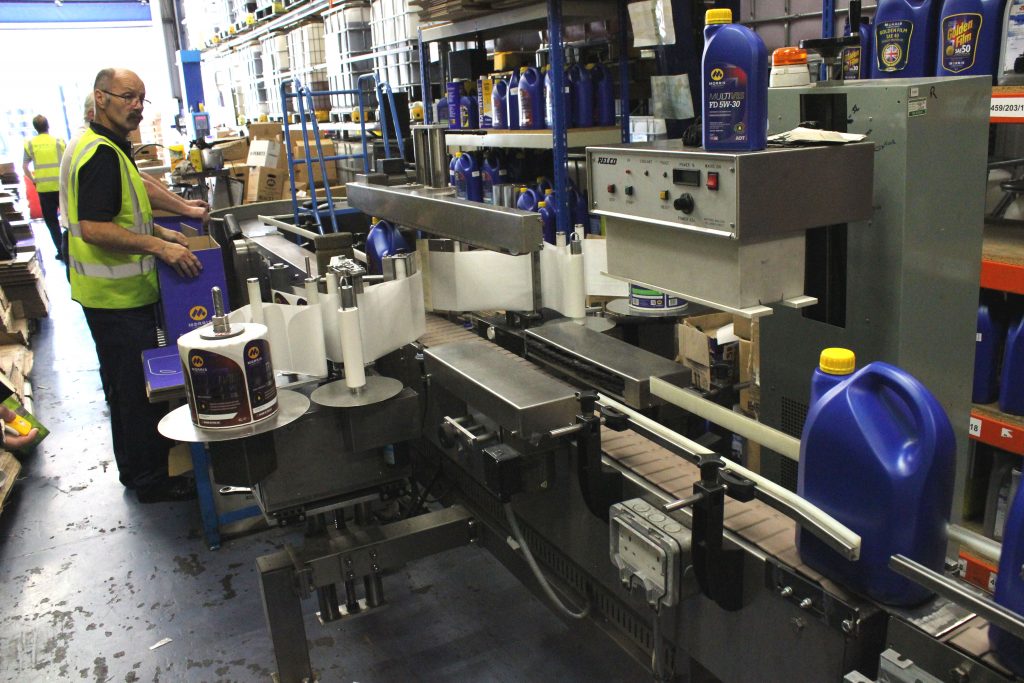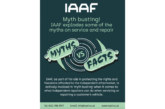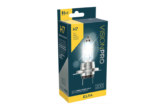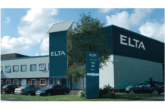
Locating the Morris Lubricants factory is not difficult; in fact it is very hard to miss. Rather than hidden away on the outskirts, in a crowded industrial estate, the factory stands on the main road into Shrewsbury town centre, recognisable by the iconic blue flag mounted at the top of the facility’s 19th Century tower. Within these red brick walls, lies a long history of lubricant production that is still filling barrels today.
“Shrewsbury is really a Morris town”, Andrew Simms, Marketing Executive.
Founded by James Kent Morris in 1869 on New Street in Shrewsbury, the company, then called Morris & Company, was initially a supplier of groceries, only moving into lubricants at the end of the 19th Century. In the decades that followed, Morris & Company became established as a significant player in the lubricants market, finally moving to the redbrick ironworks building in 1927 it still calls home today.
Naturally, over such a long history, methods have changed. Walking through the main storage area, with aisles lined with barrel after barrel, it is worth remembering that the forklifts winding around the facility were not always there and, once upon time, were preceded by trains, and before that, canals carrying barges laden with cargo. Each corner has its own crumb of history and it is based on this foundation that the Morris name flourished in the latter half of 20th Century.
Since its inception, the company has always stayed within the Morris family lineage, with the fifth generation, in the form of Andrew Goddard, now holding the reins. Not only has the business stayed within the family but it has also stayed within the town, never moving from Shrewsbury in all its 148 years of history. This company has roots that run deep and it is this connection to its history, town and family that gives it the capacity to expand and succeed.
Continual growth
As a result of its successes, both at home and overseas, Morris says it is constantly looking to expand. The manufacturer plans to grow its facility by incorporating several recently purchased properties across the street from the main plant and behind it, freeing up space for its production process.
Although Morris may be firmly rooted in Shrewsbury and is looking to expand on a domestic level, the company says it also has its sights set further afield, recently opening a second facility in India. This comes in response to the country’s growing demand for high quality oil and Morris plans to capitalise on this opportunity.
Step-by-step guide to oil production
• Base oils and additive chemistry are selected, ordered and delivered to the manufacturing site.
• Once on site, they are quarantined, sampled and sent to the QC laboratory, where they are subjected to a suite of tests to ensure suitability.
• Once approved, they are released for production. These raw materials are blended together, in compliance with strict formulation guidelines, to produce the finished lubricant.
• The blended lubricant is then sampled, sent to the QC laboratory and subjected to a series of chemical and physical tests. This ensures the formulation has been followed exactly.
• Once the sample has been approved by the QC laboratory, it is then released for filling. Before filling commences a final sample is taken from the filling head and checked one final time to ensure compliance. Once approved, the lubricant can then be filled into the appropriately labelled and batch numbered package.
• Once packaged it is palletised and then shipped out to customers, in the UK or overseas.
Behind the scenes
Adrian Hill, Automotive Product Manager remarks, “We continually invest in the QC laboratory in terms of analytical equipment and staff training. It is of the utmost importance that every stage of our production process is strictly monitored to ensure our customers receive products of the highest quality. There is a programme of continual improvement to extend our physical and chemical testing capability in order to excel in the industry, both in the UK and overseas”.
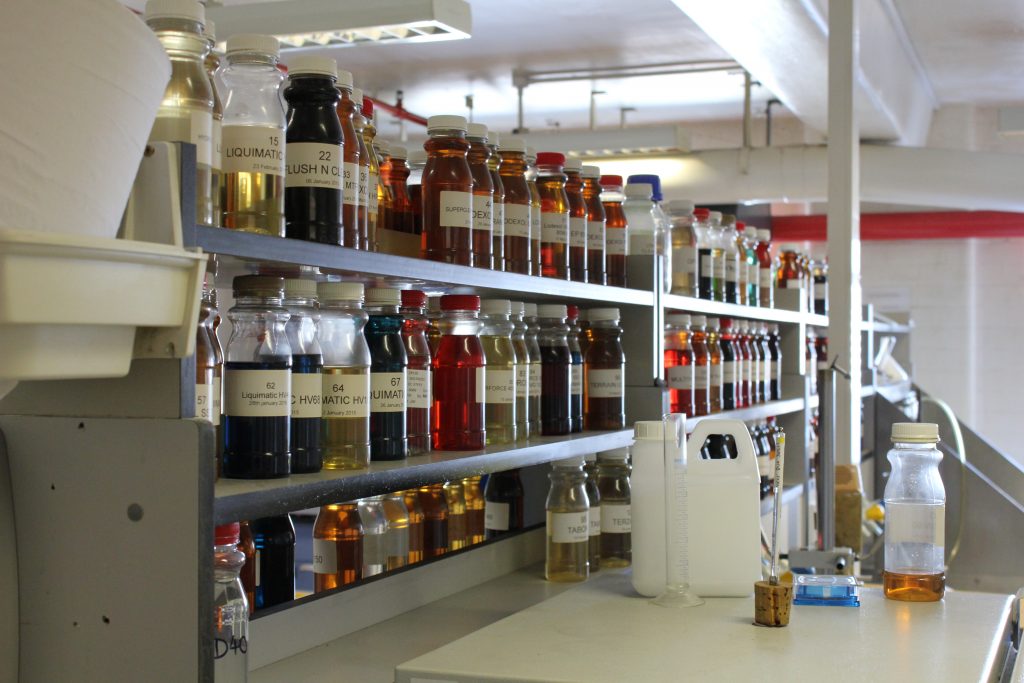
Having the right, high quality product is the keystone to successful business and this is a principle that Morris says it takes very seriously. Every batch of product that is sent out to customers goes through a rigorous testing process to make sure it meets the required specifications. A number of factors are tested, for example, flash points (temperature for combustion) and viscosity (oil thickness). This testing ensures that the product maintains the highest standards once it has left the factory and reached the customer.
However, occasionally, as is only natural, contamination can occur. It is here where Morris claims to excel. Customers can send back a sample of the product so the lab can test it again, getting detailed results explaining exactly what is wrong with the product. The vast majority of the time there is no issue with the initial oil formulation but instead it is an issue related to the storage of the oil by the customer. Often, if it is not properly stored, the oil becomes contaminated and it is because of this that it doesn’t function as it should. Being able to quickly identify the specific problem with a product means Morris can save its customers from unnecessary downtime, and, in turn, maintain a reputation for supplying both high level products and quality support.
The collaboration between the lab and customer service means the team can also offer advice on the type of oil needed for certain machinery. Given the range of products on offer, it is not always obvious which oil is suited for which machine. This is where customer support steps in by using its database to instruct on the best grade of oil for each application. Once the grade of oil is established, it is a quick and easy process to sort out product delivery to the respective customer.
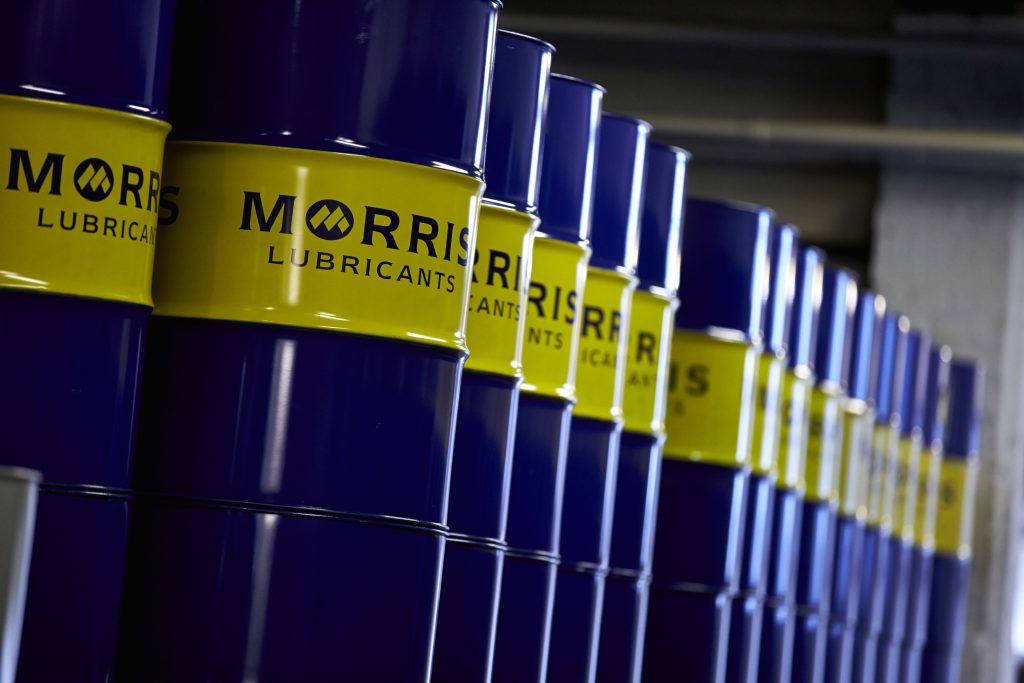
Morris legacy
Morris Lubricants says it relies on a history that spans centuries, a product that is the result of rigorous testing, and systems that put support and development at the top of the priorities list. While the company remains firmly rooted in its Shrewsbury beginnings, its reach far exceeds the walls of a 19th Century ironworks and with the opening of a new factory in India, the blue and yellow brand is determined to continue its growth.

